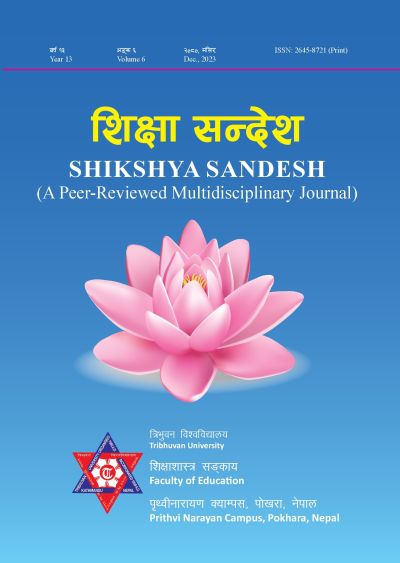Job Satisfaction Among Paragliding Pilots in Pokhara
DOI:
https://doi.org/10.3126/ss.v6i1.63095Keywords:
Herzberg two-factors theory, job satisfaction, paragliding pilots, paragliding skillsAbstract
The study aimed to examine job satisfaction among paragliding pilots based on Herzberg two-factors theory and understand the factors influencing their satisfaction and dissatisfaction. The research based on a descriptive research design, gathering views and responses from 160 paragliding pilots in Pokhara. The results showed that most of paragliding pilots were male (96.3%). The highest percentage of pilots had a secondary level of education (58.8%), and more than one-third had been working in the field for 9 to 12 years (38.1%). Overall, 106 participants expressed satisfaction with their job, while 65 were content with their colleagues and supervisors. The study found a positive correlation (0.202) between job satisfaction and hygiene factors, as per Herzberg’s theory. The p-value (0.011) indicated that this relationship was statistically significant. However, no significant associations were observed between job satisfaction, hygiene factors, motivational factors, and the respondents’ marital status or annual income. The research highlights the importance of understanding and addressing the factors that contribute to job satisfaction among paragliding pilots. By identifying the aspects that influence their satisfaction, employers and stakeholders in the paragliding industry can create a more conducive and fulfilling work environment for pilots, ultimately enhancing their overall job satisfaction and performance.
Downloads
Downloads
Published
How to Cite
Issue
Section
License
Copyright (c) 2023 The Author(s)

This work is licensed under a Creative Commons Attribution-NonCommercial 4.0 International License.
This license enables reusers to distribute, remix, adapt, and build upon the material in any medium or format for noncommercial purposes only, and only so long as attribution is given to the creator.




